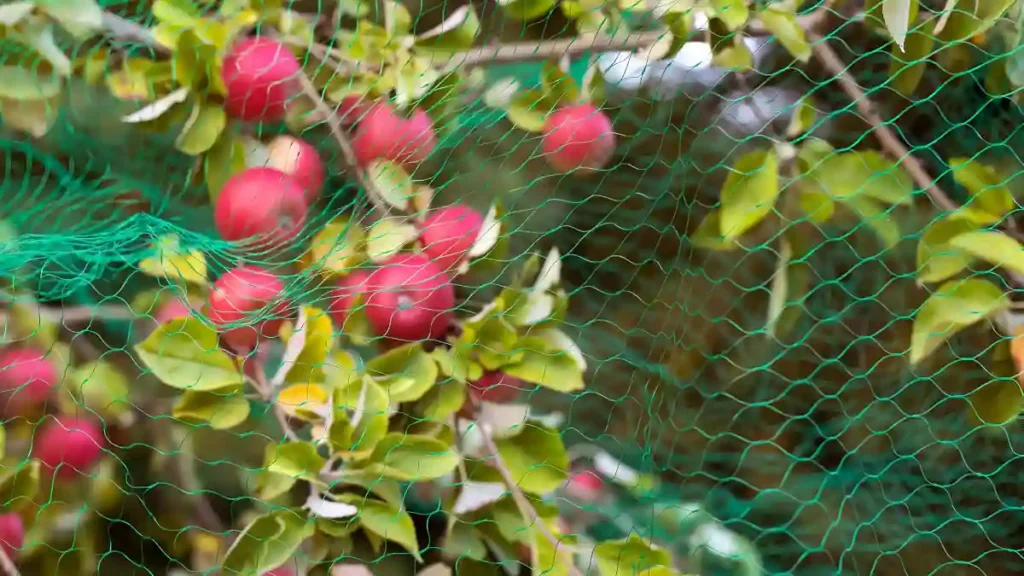Fruit trees are an invaluable resource for farmers and gardeners alike, yielding wholesome and tasty produce that can be sold or consumed. Fruit trees should control their pests before the fruit ripens because birds can harm them and drastically lower production. You can use bird traps to prevent birds from perching on your fruit trees. To keep birds and other pests away from your fruit trees, you can apply chemical repellents. To know how to protect fruit trees from birds, read this article from beginning to end.
Here are some methods on how to protect fruit trees from birds:
Always be sure to verify local laws before utilizing any bird control techniques. There are, some practical strategies to keep birds away from fruit trees.
- Birds can be trapped as early as 30 days before fruit ripens, with blackbirds and starlings being the most common species. Any food that appeals to birds may be placed there. Since it is against the law to harm birds and they are protected animals, cover your fruit trees with netting to keep birds away from the fruit. Ensure that the netting is long enough to cover the entire tree and at least 6 feet wide. The birds must be released when you have captured them in the net.
- Create a visible barrier by hanging reflective tape aluminum foil or other shining things. Protect each fruit with physical barriers like separate fruit covers. To divert birds off your fruit trees, place plants that attract them nearby, such as sunflowers or bird feeders. Spritz the base of the plant with mixtures that contain capsaicin or other bird-repelling agents.
- Plant fruit crops far from popular perch locations. After pollination, the plants are covered with exclusion netting to keep birds and insects out of the mature fruits. To protect the developing fruit clusters, use garden mesh sacks.

- Use noisemakers like ultrasonic bird repellers or propane cannons to scare birds away. Tie reflective scare tape to tree branches or fasten it to poles for an inexpensive and simple solution. The tape flies in the air, reflecting light to keep the birds away.
- In case none of these techniques work for you, you can put a squirrel-proof bird feeder far from your fruit plants to divert the attention of bird robbers. Give your fruit trees and berry plants a break so the birds may gorge on seeds, grains, and nuts. Moreover, Pest birds can be deceived visually with “terror eyes,” which are reflected eyes and predator marks.
- Both classic scarecrow designs and the newest models, which use infrared sensors to identify birds and shoot a water jet to shock them, work well. In commercial orchards of considerable size, the use of natural predators is growing. Use a combination of these techniques for optimal protection, since birds can eventually become habituated to a particular approach.
Conclusion:
If you want to guarantee a robust and plentiful crop, you must learn how to protect fruit trees from birds. Since birds might grow acclimated to a single form of repellent, it is usually better to use a combination of these techniques. Deterrents can be made more effective and ensure that your fruit trees are safeguarded during the growing season by rotating or replacing them regularly.
Certainly! If you’d like to learn more, please consider following our WhatsApp Channel: Harvest Gardening
A frequently asked questions:
Q1. How to protect fruit trees from frost?
A1. In the late afternoon, cover your fruit trees against frost by covering them with burlap or a blanket. Pruning a plant too soon before a frost can make it more vulnerable to damage. Frost damage can be avoided by putting a string of lights beneath the tree.
Q2. How to protect fruit trees from animals?
A2. To keep larger animals, such as deer and raccoons, out of your orchard or individual trees, install a strong fence. Spray or apply repellents such as hot pepper spray, or commercial deterrents around the trees to deter animals from approaching.
Q3. How to protect fruit trees in winter?
A3. To prevent frost damage, cover the trunks with burlap or tree wrap. Mulch the tree’s base heavily, but avoid covering the trunk with it. Before winter arrives, trim any damaged or dead branches to avoid illness.
Q4: How do you keep birds and insects away from fruit trees?
A4: Use netting to cover fruit trees to keep birds away from them. Use organic insecticides or beneficial insects like ladybugs to organically control pests.



